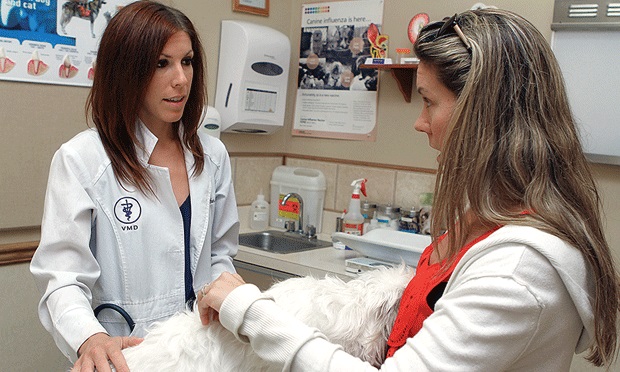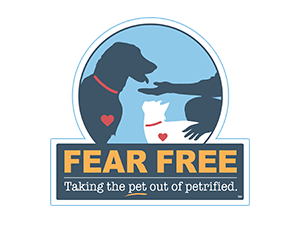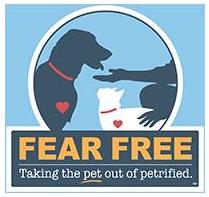
April 2019 – Pet Toxins: Lilies and OTC Medications
This month we highlight two toxic dangers to pets that you might not be aware of: Lilies and Over-the-Counter medications.
Please Keep Lilies Away from Kitties!
Out of all the plants that are toxic to your cat, lilies are the most dangerous. It’s well worth a reminder not only at Easter time when Easter lilies abound, but anytime throughout the year when people are purchasing flowers for their home or as gifts. It is simply too easy for a cat to accidentally be put at risk of lily poisoning and certain death when a lily plant is presented by an uninformed person or pet parent.


Easter lilies are pictured above, but the list of lilies that pose toxicity issues includes Tiger lilies, Day lilies, Asiatic hybrid lilies, Japanese show lilies, Rubrum lilies, Stargazer lilies, Red lilies, Western lilies, and Wood lilies. It’s extremely important to know that all parts of the Lily are highly toxic to cats. Even if your cat ingests a small amount, as little as two or three petals or leaves, it can kill them under the radar weeks and sometimes even months later. Even the pollen or water from the vase is just as toxic as the plant itself.
If you think your cat has ingested any part of a lily or water from the vase, get help immediately from your family veterinarian or 24/7 emergency clinic!
Human OTC Medications Pose Risks to Pets
It’s not unusual for pet owners to want to give their animals NSAIDs or acetaminophen (Tylenol and other brands, which are not NSAIDs) straight from their own medicine cabinets to immediately treat their pet’s symptoms of pain and discomfort. However, some over-the-counter (OTC) human pain relievers can be toxic or even fatal. Therefore, it’s critical to follow your veterinarian’s instructions when it comes to pain or other types of medications before making a decision on your own.
Any medication, prescription or over-the-counter, should only be administered under your veterinarian’s advice. Before prescribing a medication, your pet’s history of gastrointestinal problems, such as stomach ulcers, or surgery on the stomach or intestines will be taken into consideration as well as any other medications or supplements.
Communication with your veterinarian is essential. Ask questions and make sure you fully understand what the medication is being prescribed for, how much to give and how long to give it. Your vet can alert you to any possible side effects and symptoms, especially those that require an immediate call to the veterinarian. Also, pet owners should not assume that a medicine that is safe for one animal is necessarily safe for another. All pets are individual cases.

Veterinarians have long warned that pain medications like ibuprofen are toxic to pets. The AVMA has reported in the past that Ibuprofen was a common drug that pets readily eat. These drugs can cause stomach or intestinal ulcers and kidney failure in pets. As little as 50 milligrams of ibuprofen for every kilogram a cat weighs can cause problems; for dogs, it’s 100 milligrams for every kilogram.
The FDA recommends that pet owners store all medications away from pets and to discard anything used to apply the medication. And please keep any type of human pain relief creams safely out of reach of curious pets. If any furniture or carpeting becomes contaminated by pain relief creams, clean it immediately to avoid contact by the pet.
If you suspect your pet has ingested human medication and he/she shows signs of lethargy, vomiting or lack of appetite, contact your veterinarian immediately.
Where to get Help:
In an after-hours emergency, remember to refer to our BMAH website Pet Emergency page for 24/7 clinics near you and the Pet Poison Helpline details.
Further Recommended Reading for Poison Prevention Awareness:
Pyrethrin and Permethrin poisoning in cats
Warning: Essential Oils are a Toxic Risk to Pets
Garden mulch can be toxic to your pets
Mushroom toxicity can be life-threatening to your pet
Belle Mead Animal Hospital, Your Other Family Doctors
Handling Every Pet with Love Every Day!
As Certified Fear Free Professionals, our Mission is to prevent and alleviate fear, anxiety and stress in pets by inspiring and educating the people who care for them.


LIKE us on Facebook and Follow us on Twitter @BMAH121, and Pinterest for news and pet wellness tips. We’re also on YouTube! Subscribe for updates! Tag and Follow us on Instagram!








